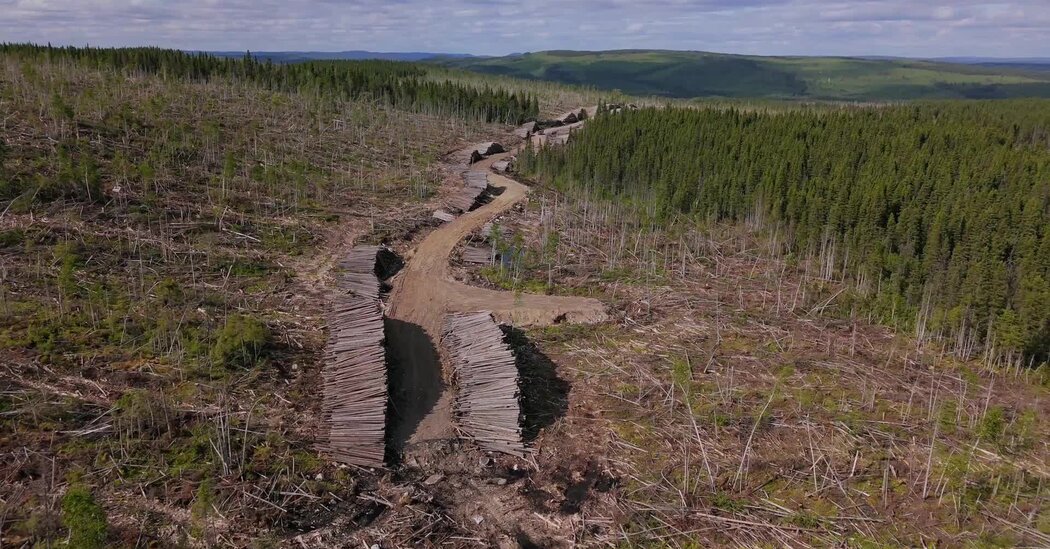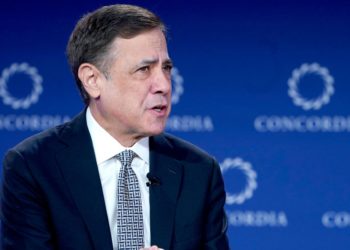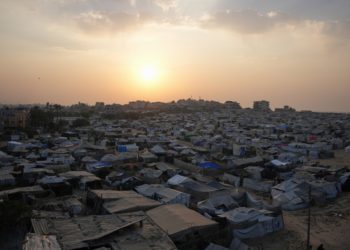“Build, baby, build.”
Canada’s spin on the mantra has been a nationalist rallying cry of Prime Minister Mark Carney: Build “Canada strong.” Build a Canada less dependent on the United States. Build an “energy superpower.”
That means to build, and quickly, projects of national interest that could include oil pipelines, nuclear facilities, mines, power grids, ports, roads and railways — all of it to create a stronger domestic economy and increase trade with countries other than the United States.
“We are going to build,” Mr. Carney said in his speech after winning the election in April. “Build, baby, build.”
But Mr. Carney’s ambitions are facing a fierce backlash — building any enormous infrastructure would most likely require doing so on the ancestral lands of Canada’s Indigenous groups. And they have denounced the government’s vision even before the first shovels have been pushed into the dirt.
Indigenous leaders, whose opinions were ignored in past nation-building periods, say that it must be different this time. In a new era of reconciliation between Canada and its Indigenous communities, they want a say — perhaps even a veto — over what gets built.
“It’s up to governments to come and see us about decisions concerning our territory,” said Dave Petiquay, a traditional leader in Wemotaci, a reserve in Quebec of the Atikamekw First Nations people. “But they don’t. They come only after making decisions and passing laws.”
Last week, in the first major piece of legislation since Mr. Carney became Canada’s leader this year, Parliament made it possible to fast-track projects that the government deems of national interest. Mr. Carney has brandished the law, which also eliminates federal barriers to domestic trade, as an urgent response to President Trump’s tariff war against Canada and threats to turn it into the 51st state.
But Indigenous, as well as environmental, groups say lawmakers spent an insufficiently short time debating a law that could, as Mr. Carney has vowed, result in Canada’s most significant economic transformation since World War II. The Assembly of First Nations, Canada’s most prominent Indigenous organization, criticized the law, saying it excluded First Nations’ “priorities and perspectives,” and said that Indigenous “rights are not for sale.”
The law allows the government to identify national-interest projects — including those that “strengthen Canada’s autonomy, resilience and security” — and approve them through “an accelerated process.”
Indigenous and environmental groups say the government could use the threat of Mr. Trump’s economic tariffs to ram through large-scale projects without proper assessments, though the government has yet to identify any specific plans.
Indigenous groups account for about 5 percent of Canada’s population. The government has pledged to consult with potentially affected Indigenous communities in a way that ensures their “active and meaningful participation.” But what that means exactly is likely to be contested by Indigenous groups in the courts and on the ground.
Already, when Mr. Carney’s justice minister noted that the government had the constitutional obligation to consult with Indigenous groups on major projects but that they did not have veto power, the minister had to quickly apologize to offended Indigenous leaders.
Responding to the criticism, Mr. Carney pledged to personally meet with Indigenous leaders over the summer, promising “meaningful consultation” in the selection and development of projects.
In the past, Indigenous groups have exercised power on their traditional lands through blockades and other protests, including in remote areas where they are often the only inhabitants near logging or mining sites.
Protests in Quebec could be a preview of the battles that Mr. Carney’s nation-building projects could stir.
In the past couple of months, Indigenous groups have erected blockades to stop logging at a dozen locations in Quebec — in a widening protest against the provincial government’s plan to make a greater share of public forests available to loggers.
Many public forests are on what Indigenous people consider ancestral lands that they have not ceded in treaties with colonial or government authorities. Indigenous groups believe they have claims to these lands, which they have occupied before the arrival of Europeans.
“This is where we had the blockade,” said Guy Paul, a traditional leader of the Innu First Nations. “We got the logging tractors to leave.”
On a recent afternoon, Mr. Paul was walking across his late cousin’s ancestral land in the Passes-Dangereuses region of Quebec, more than 300 miles north of Montreal. Thousands of logs had been hastily left behind after the loggers’ expulsion.
Mr. Paul, 60, was one of the organizers of Mamo First Nations, an Indigenous alliance objecting to the province’s forestry plans.
“We’re not against logging, but against certain practices,” Mr. Paul said, adding that the alliance opposed clear-cutting and logging too close to lakes.
The provincial government has defended its forestry plan, arguing that it would help communities dependent on logging and that Indigenous groups had been consulted.
For Mr. Paul, the fight against the forestry plan was part of a wider struggle to gain greater control over his group’s ancestral territory.
When Quebec began building one of the world’s largest hydroelectric networks in the 1960s, erecting giant dams and flooding many Indigenous communities’ ancestral lands in northern Quebec, the province did not consult with the Indigenous communities or even tell them of its plans.
Mr. Paul said his father worked for years as a driver for the provincial utility, collecting a salary and year-end bonuses. But his father had mixed feelings, believing that the utility hired Indigenous workers to quell their anger over the transformation of their traditional lands.
“He used to tell me that’s how the Indigenous were bought, that’s how they were silenced,” Mr. Paul said. “A couple of years before he died, he kept telling me not to make the same mistakes he did.”
Mr. Paul lives in a clearing off a logging road in an area that his wife, Julienne Dominique, and her family consider their traditional land. They had built houses along a lake, with a view of the surrounding mountains. Loggers had been active nearby, including in an area that her family had unsuccessfully asked to be spared because it contained willows that her brother used for sculpting.
“They never consult with us,” she said.
At the entrance to their homestead, the couple had raised tepees with signs that protested the logging plan and declared the area “unceded territory.”
Much of Quebec, British Columbia, the Atlantic provinces and other parts of Canada are unceded territory that the Indigenous groups never surrendered in treaties.
For many Indigenous people in Canada, their claims of greater influence over ancestral lands got an unexpected boost recently from King Charles III. In a formal speech opening Parliament, Charles began by saying that he was in Ottawa, “unceded territory of the Algonquin Anishinaabeg people.”
Though that kind of land acknowledgment has become common in Canada in recent years, it contained a singular meaning, coming from the head of the monarchy under whose authority Canada was colonized.
“My cell started buzzing with messages when he said that,” said Mr. Petiquay, who has also led efforts against the provincial logging plan.
Now was the time to see whether those acknowledgments were just empty words in the face of the urgency to “build, baby, build,” Mr. Petiquay said.
“If I look at the government’s behavior, I sense a fear toward us,” he said, “because they think that we want to stop progress.”
He, too, wanted Canada to become less dependent on the United States and said he understood that Canada “was caught in the middle” of a rivalry among larger nations.
“Everybody wants our resources, especially in our North, our water, our forests, our mineral resources,” he said. “The United States, but also Russia and China.”
Near the reserve’s modest cemetery, where simple wooden crosses far outnumbered the few granite headstones, Mr. Petiquay stood on an elevated bank overlooking the Saint-Maurice River. One of Quebec’s great white water rivers, the Saint-Maurice River flows for more than 350 miles, crossing the “Nitaskinan,” or what Mr. Petiquay’s Atikamekw call their ancestral land.
For more than a century, the waterway had contributed mightily to enriching this corner of Canada. It helped make Quebec the world’s leader in the newsprint industry, helping to build fortunes in cities and towns downstream, closer to the Saint-Maurice’s mouth with the great St. Lawrence River. It had also helped turn Quebec into a leading producer of hydroelectricity.
“We have enough resources,” Mr. Petiquay said, “for all Canadians and Indigenous.”
Norimitsu Onishi reports on life, society and culture in Canada. He is based in Montreal.
The post Carney’s ‘Build, Baby, Build’ Faces Pushback From Indigenous Groups appeared first on New York Times.




